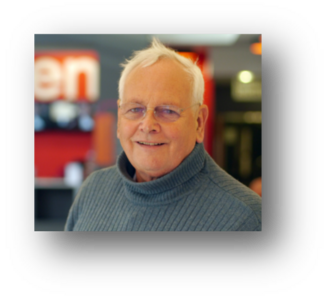Group 5
Comparative Group 5: In Between Global and Local: The Roles of Adult Educators to develop Learning Cities for Lifelong Learning
Participation, adult learning, community, professional roles
Having been identified in several recent documents of UNESCO and its Institute for Lifelong Learning, comparative research of learning cities has become an important issue for adult education and lifelong learning in several aspects. Also, learning cities could successfully integrate global and local influences upon adult learning in order to claim a special role for knowledge transfer, community development, skills development for individuals,
Today, not only policy perspectives on lifelong learning, but also the dimensions of citizenship education can be strongly tied up to learning cities, on the one hand, when we try to underline the role of professional roles to orientate learning city developments towards SDGs, more precisely, to quality education and learning. On the other hand, adult educators have a responsibility to organise community-focused and needs-oriented celebratory events of learning festivals, adult and lifelong learners’ weeks, etc. These events should help raising participation and quality in adult learning through the development of knowledge and skills.
Comparison of learning cities, regions and of learning communities allow us to recognise similarities and differences in order to get a better understanding of the topic with transnational perspectives and collaborative approaches. ASEM LLL HUB, PASCAL International Observatory and ESREA publications will be of help in these contexts.
Comparative research question
Please choose one learning city as model:
- In your selected model, what are the main socially driven goals of the learning city-region model initiative/community learning activity?
- What issues, matters influence participation in the learning city you have chosen referring to initiative as community learning activity?
- What are the choices and barriers of collaboration of relevant stakeholders in the selected model/action?
- What are the effective forms of collecting and sharing knowledge in the learning city model, initiative as community learning activity you have chosen?
Context of comparison
The following aspects will be examined through individual examples participating students will have to collect and shortly analyse based on the learning city/region or learning community they focus on:
- Drivers of building a learning city/ learning community;
- Reasons for participation in learning city-region initiative/community learning activity;
- Choices and barriers of collaboration of relevant stakeholders in building the learning or smart city;
- Forms of collecting and sharing knowledge in the learning city-region/community learning activity
- The role and impact of the adult learners’ weeks/lifelong learning weeks in the country the participating student may represent;
- Learning in between global and local (in between global/international initiatives and local/regional realities) – the roles of learning festivals, ‘learnfests’, etc.
- The role of the media and social media and public discourse on the benefits of local/regional collaborations around learning;
- Learning with/through economic organisations/companies/firms and learning in cultural/community/NGOs and other socially driven organisations (e.g. museums, libraries, community learning centres, etc.). Pointing to some good examples in those two major dimensions (social and the economic)
Role of Practitioners
Practitioners can collect examples of learning cities and relate their skills and competences to the demands of learning city teams upon how to raise participation and performance of adult learning through learning city services and programmes.
Categories of comparison
Potential categories of comparison:
- The drives of making a learning city a reality
- Goals of the learning city-region
- Composition of stakeholders and their claims
- The impact of relevant policy, law and financing
- Roles of adult educators in the development of learning cities and learning communities.
References
Longworth, Norman (2006) Learning cities, learning regions, learning communities. Routledge. London-New York.
Doyle, L. – Adams, D. – Tibbitt, J. – Welsh, P. (eds.) (2008) Building Stronger Communities. NIACE, Leicester.
Németh, Balázs (2019) Learning cities and culrure working together Pécs: PTE-CKH
Students will find info on several learning cities at: http://uil.unesco.org/lifelong-learning/learning-cities
The 2019 UIL Handbook on Lifelong Learning (to be published in May – June 2019)

Dr. habil Balázs Németh PhD, Institute for Human Development and Cultural Science at the Faculty of Humanities of the University of Pécs, Hungary
Dr. Balázs Németh is an associate professor of adult learning and education at the University of Pécs, Hungary and a researcher of learning cities and regions from the comparative scope of non-vocational adult learning, community development and intercultural dialogue/understanding, development of active citizenship. Also, Németh is interested in the analysis of the roles of Inter-governmental organisations (IGOs) and Non-governmental organisations (NGOs) in the development of learning cities.

Prof. Sir Alan Tuckett, Visiting Professor at Julius-Maximilian-University Würzburg, Germany
Sir Alan Tuckett is Professor of Education at the University of Wolverhampton, Honorary Fellow of UNESCO's Institute of Lifelong Learning, Distinguished Professor of the Indian International Institute of Adult Education, New Delhi, and Past President of the International Council for Adult Education. Alan is interested in policy affecting adult learners, participation, equity, advocacy and mobilisation of learners, and is actively involved in the development of a learning city.


